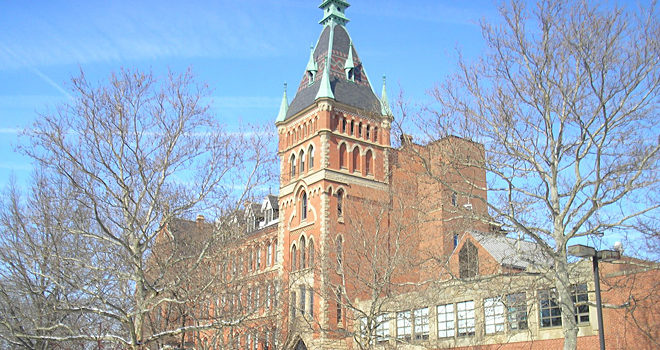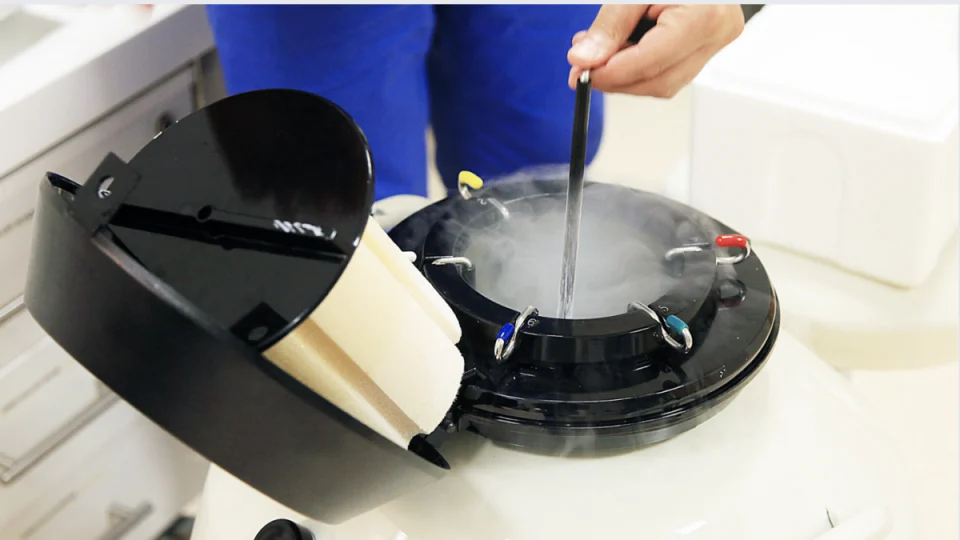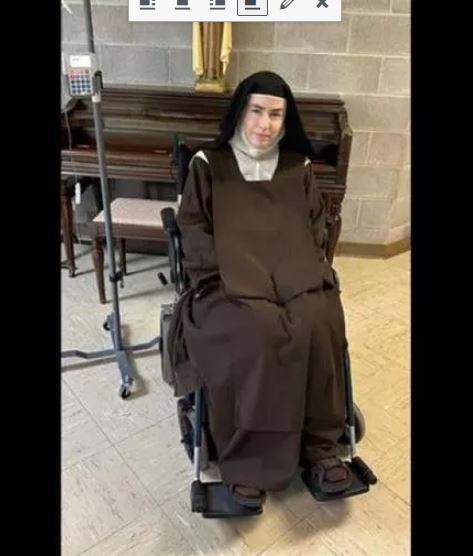Supreme Court Lets Dismemberment Abortions Continue, Won’t Hear Alabama Case, by Claire Chretien
July 1, 2019Loving Your Enemies, Hating Your Family (Or Country), by Steven D. Greydanus
July 1, 2019
By Max Bindernagel, Crisis Magazine, July 1, 2019
 News of the conflict between a Jesuit high school and the midwestern archdiocese under which the school operates spread quickly last week through social media. For news outlets hungry for a story, the narrative wrote itself: a teacher at Indianapolis’ Brebeuf Jesuit Preparatory School had entered into a same-sex “marriage,” the Archdiocese demanded said teacher’s termination, and the school’s refusal in that matter precipitated the Archdiocese’s decree that it could no longer recognize Brebeuf as Catholic.
News of the conflict between a Jesuit high school and the midwestern archdiocese under which the school operates spread quickly last week through social media. For news outlets hungry for a story, the narrative wrote itself: a teacher at Indianapolis’ Brebeuf Jesuit Preparatory School had entered into a same-sex “marriage,” the Archdiocese demanded said teacher’s termination, and the school’s refusal in that matter precipitated the Archdiocese’s decree that it could no longer recognize Brebeuf as Catholic.
The Archdiocese, the school, and the Midwest Province of the Jesuits all made their respective statements, and predictable responses have since arrived from predictable commentators in the Catholic world. What few have the courage or insight to say, however, is that the entirety of this tale was predictable from the start. The American Church was already divided on this issue, and the hitherto unspoken gentlemen’s agreement between Catholic educators and their local bishops to avoid the problem was unsustainable from the start. As long as Catholic educators were willing to toe the line, at least outwardly and officially, regarding Church teaching, Church officials were willing to ask fewer questions. But in a politically divisive time such as the current one, this policy of mutual appeasement is a rickety, unstable house of cards, and given time it could only breed resentment as it veers inevitably towards collapse. One archbishop’s willingness to name – and attempt to deal with – the elephant in the room sufficed to send that beast into a fit.
The ultimate fallout of the events in Indianapolis is far off, and it seems likely that numerous battles, both legal and ecclesial, stand between the present moment and any resolution. What is worth noting, however, is how this story stands as the photographic negative of a much different, less publicized tale from two years ago in neighboring Ohio.
St. Ignatius High School in Cleveland, long respected as a bastion of rigorous Catholic all-boys education and known for its continuously growing collection of state championship banners, refused to renew the contracts of two longtime theology teachers, whose combined tenure amounted to over six decades and who both held reputations for their conservative views. While this might have passed unnoticed, this particular incident raised eyebrows for the poorly-camouflaged ideological machinations which brought to an end the careers of two men.
The school’s administration never revealed why these two would not receive a contract, and no process or procedure ever took place through which they could receive notice of what they had done to merit their dismissal, much less a possible course of remedy to whatever flaws the administration perceived in them. In one fell swoop, they appeared for an impromptu meeting with administrators, and both men, one still with a child in middle-school, found themselves without jobs for the upcoming year. Because this notification came late in the year, they were unceremoniously thrown into a rather merciless and unpromising job market.
Whatever their “crime,” it apparently bore such gravity as necessitating their removal from the school, but not so much that they could not finish out the year. Meanwhile, as local press picked up the story, a more involved narrative came into focus. In prior months and years, the school had become more vocal about social issues, increasingly following the suit of the political left. To take just one example, the Winter 2017 issue of the school’s alumni magazine featured the pro-LGBT student club, including a picture of two boys embracing on the issue’s cover. The president’s editorial in that issue was fraught with predictable rhetoric about diversity and sensitivity. It was later that same year when these two contrarian teachers, known for swimming against this grain, lost their jobs.
But more details slowly came to light. In 2016, the Jesuits of the Midwest had performed an “Ignatian Identity Review,” a routine audit of sorts by which the Society of Jesus evaluates the mission of its many affiliated institutions. While the review cannot make executive decisions for the school, it can make recommendations. The 2016 review suggested that the school’s curriculum include topics such as “systematic racism and good social analysis”; that the school strive to be inclusive to women, the LGBTQ community, and “any who are in a ‘different’ category”; and that the school “develop specific targets and procedures that will bring in more students of color. Metro Cleveland is 28% of color. That might be a good target for Saint Ignatius as it seeks to represent the Cleveland community.”
The dull tone of this litany, however, shifted dramatically on the topic of the Theology Department: “Regarding the concerns about methods used by some in the Theology Department, our team referred to the 2011 review report which in turn referred to the 2006 report. We noted that there have been changes in the Theology Department that have positively addressed some of the issues presented in those reports…. However, in our judgment, the concerns have not been adequately resolved. We believe that these issues lie with a small number of Theology faculty members, but they are significant, not merely matters of style and/or pedagogy, but matters of substance. The issue needs to be resolved.”
It would require the pen of the late Christopher Hitchens to adequately excoriate the Orwellian overtones of that paragraph.
Despite heroic efforts from colleagues, friends, and alumni, the pendulum swung its course and two good men lost their jobs when the school year finished in June of 2017. That same summer, the former Editor-in-Chief of the school paper, with his diploma then comfortably in hand, wrote openly about threats he and his staff received from school administrators should they publish anything about the two former teachers. They were denied even short tributes to departing teachers, a longstanding tradition in the school paper’s final issue. Defying that injunction carried with it (for the student staff) the cost of not walking at graduation and (for the faculty moderators of the paper) the jeopardization of their jobs. Despite the benign and inoffensive rhetoric from the school’s administration, the heart of the matter was clear: two good men had their careers casually torn from them with neither ceremony, pastoral solicitude, nor Christian charity.
There is a moral behind these two controversies, separated though they are by two years and miles of interstate highway, and it can be put simply enough: the center cannot hold. For too long, those concerned with the integrity of the faith have been content to see individuals and institutions toe the line outwardly without requiring an interior assent, and those who are skeptical of certain demands of the Christian moral life have grown comfortable living in a state of dissatisfaction. Neither path is sustainable, and both lead only to resentment. Both the backlash against the archbishop in Indianapolis and the heavy-handed authoritarianism in Cleveland were the inevitable consequence of the Church’s decades-long failure to preach the gospel with integrity. In matters of highest importance, the Church’s gentlemen’s agreement to “get along” quietly could never be gentlemanly, nor was it ever really an agreement. If the Indianapolises and Clevelands of the world can hope for something different, then we need something new.
What we need now are Catholic educators who witness to the continuity between those things which the world finds so hard to reconcile: between Christian ethics and Christian charity, between contemplation and action, between nature and grace. What we need now are schools to become prophetic moral voices, rooted in the ever ancient, ever new Word of the Living God. What we need now are schools that do not treat divisions in the Church as problems to manage, as though adequate administration would suffice as a remedy. What we need, in short, is a new evangelization.
If we were to study the number of Catholic school alumni who continue to practice their faith in the months, years, and decades following their graduation, I strongly suspect that the findings would be abysmal and disheartening. As long as our schools proclaim the gospel in tepid and uninspiring tones, we can only expect an equally tepid and uninspired response from our students. For anyone involved in Catholic secondary education, especially those entrusted with a school’s day-to-day mission of living the Gospel, a few questions demand urgent consideration: how does Christ call us, both personally and institutionally, to deeper conversion? What facets of our minds, hearts, offices, and classrooms have we yet to surrender to his Kingship? In what specific ways are our Catholic schools actually different from our more secular counterparts? Do we care enough about our faith in Christ to live, defend, and pass it on to our students, and in such a way that they are inspired to do the same?
For all the ubiquitous concern with “dialogue” today, too often this simply amounts to shallow conversations without intellectual depth or seriousness. As the Church, we are called to be one in mind and heart (John 17:21) in our search for the truth, and there is every reason why Catholic schools, animated by the Logos made flesh, should be able to forge a true dialogue (dia-logos) as we engage our minds in the study of the real, searching for the true, good, and beautiful. If our schools take seriously the call to educate with intellectual and spiritual gravity, then Catholics will be uniquely poised to witness prophetically, in a politically divisive moment, to the unity in truth that transcends time and space, minds and hearts.
(Photo credit: Saint Ignatius High School / Wikipedia)

Max Bindernagel has taught Theology and English for the past five years at Georgetown Visitation Preparatory School in Washington, DC. He earned a BA in German Studies and Philosophy and an MA in Philosophy from Boston College, and an MA in Liberal Arts from St. John’s College in Annapolis.
Go to Crisis homepage
© Copyright 2019 Crisis Magazine. All rights reserved.







